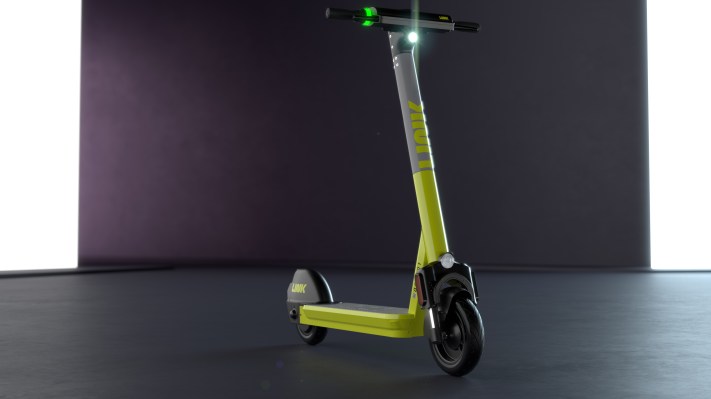
Superpedestrian, the startup that makes e-scooters equipped with self-diagnostic software, is upgrading its product as it prepares for a major expansion into 10 new cities within the next two weeks.
Considered an up-and-coming player in the micromobility world, Superpedestrian says it has figured out how to build AI to monitor and correct scooter safety issues, directly and in real time. The next-generation operating system that will provide those upgrades, codenamed “Briggs,” will be uploaded to its global fleet of LINK e-scooters. It includes improvements to geofencing capabilities and battery life, making Superpedestrian more attractive to cities looking for partners who can provide assurances around safety and reliability.
“The scooter market has shifted in its short lifespan from a B2C to, in a lot of ways, more like a B2G [business-to-government],” said David Zipper, visiting fellow at the Taubman Center for State and Local Government at the Harvard Kennedy Center. “The trend has been for cities to reduce the number of concessions they grant to scooter operators, which puts more pressure on scooter operators to get one of those declining numbers of contracts available. You can’t really overstate how important it is, which technologies will rise and fall, and how companies position themselves.”
Superpedestrian is currently one of the underdog e-scooter companies that are in the running for partnerships with cities like New York, which will soon be announcing the specifics of its e-scooter pilot program in the Bronx. Micromobility giants like Bird, Lime and Voi have also placed bids.
The company currently operates in cities across the U.S., including Seattle, Oakland, San Jose and San Diego, as well as European cities like Madrid and Rome.
“Cities love our 100% compliance record,” Ross Ringham, Superpedestrian’s EMEA director of communications, told TechCrunch. “We have never been censured, suspended nor expelled from any of our markets. We believe it is critical to work hand-in-hand with regulators to provide a successful service.”
City officials today are most concerned with complaints about scooters cluttering up sidewalks, so being able to clear the sidewalk or diagnose a broken scooter right away and summon someone to come and collect it would be an appealing value proposition for Superpedestrian, said Zipper.
The LINK scooters are powered by a Vehicle Intelligent Safety (VIS) system, which combines AI, 73 sensors and five microprocessors to run 1,000 vehicle health checks every second a ride is taking place. The software is constantly self-monitoring and self-correcting, looking out for things like brake issues, battery cell temperature imbalances, cut internal wires and water penetration.
“VIS is as big a step-change in scooter safety as the seat belt was for cars, refined over four million miles of testing and service since 2013,” said Ringham. “As a result, we’ve had zero vehicle recalls or manufacturing defects globally.”
The new update also includes 22% faster geofence reaction, three time more capacity for onboard geofences and sevenfold more precision when it comes to geofence accuracy. That means the scooter is able to better recognize a no-ride zone, and improve rider compliance by slowing down speeds and prohibiting riding or parking in certain areas.
The fact that these computations are done in real time, locally on the scooter itself, accounts for the speed and accuracy of LINK’s system, which reacts in as little as 0.7 seconds, and as few as 4.6 meters away from where a geofence-related issue was first detected. Other scooter companies tend to rely on cloud computing to calculate and enforce geofences, which can be too slow to stop riders from speeding through pedestrian areas or busy traffic.
“Our competitors typically buy off-the-shelf products and commonly use white label apps,” said Ringham. “We do not outsource safety in this manner, meaning the information flows from our operations team and global fleets are used by our engineering teams to sustain continuous improvement.”
Companies like Bird, Atom and Joyride offer white label operating systems that allow independent operators to launch their own rideshares and manage fleets, but not many players offer the type of safety-focused tech you see with LINK.
Detailed logs are also pulled by engineering teams to enhance performance with each updates, so the scooters get smarter over time, according to founder and CEO Assaf Biderman. The aggregated and anonymized data collected from LINK’s onboard software is also shared with city partners to help them design better infrastructure to support this emerging transport form.
“If a city partner comes to us with a new idea, we can easily add that, thanks to VIS,” Biderman said in a statement. “This makes for constantly-improving vehicles for riders, better protection for pedestrians and more robust safety performance for cities. Cities should demand nothing less for their citizens.”



